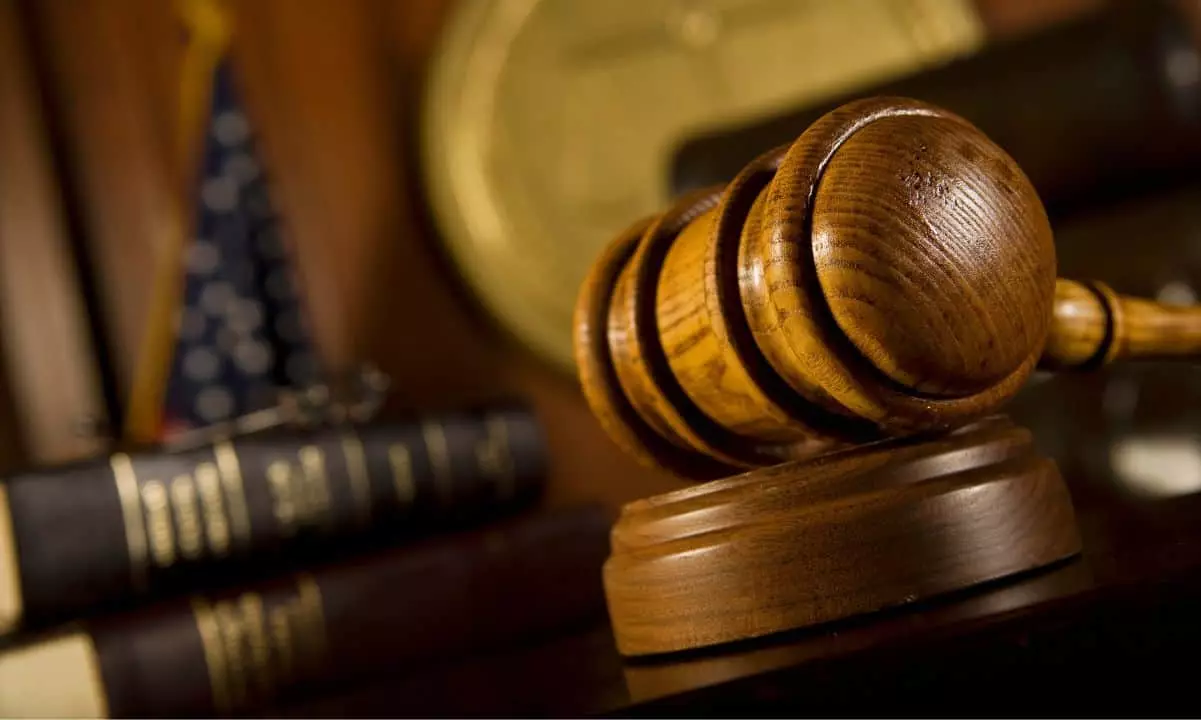In the ever-evolving landscape of digital currency, few stories evoke as much intrigue as that of James Howells, a man fighting tooth and nail to reclaim 8,000 Bitcoin (BTC) valued at nearly £500 million. The genesis of this convoluted tale dates back to 2013, when an unfortunate series of events led to the accidental disposal of a hard drive containing Howells’ prized cryptocurrency at a recycling center. What follows has been over a decade of relentless pursuit, legal wrangling, and a public drama that intertwines personal misfortune with the tumultuous world of cryptocurrency.
Howells, now 39, has positioned himself as a modern-day crusader, filing a lawsuit against Newport Council as a “last resort” to retrieve what he describes as his rightful property. His declaration of being “largely ignored” underscores a broader commentary on the governance of local councils and their interaction with emerging digital assets. Howells’ claims highlight a crucial tension that has surfaced as cryptocurrencies have gained mainstream recognition: the intersection of technology, law, and personal accountability.
The crux of Howells’ lawsuit is not merely about monetary compensation; it is emblematic of a hotly contested legal landscape concerning digital currencies. Seeking just under half a billion pounds (approximately $646.4 million), Howells intends not only to represent the value of his lost Bitcoins at a historical peak but also to compel Newport Council to allow an excavation of its landfill. The ambitious plan, which would see a proposed £10 million ($13 million) excavation conducted at no expense to the council, raises complex questions about ownership, responsibility, and environmental ethics.
In a world where Bitcoin has transitioned from a niche digital currency to a financial powerhouse, fundamentally altering traditional notions of wealth, Howells’ situation serves as a potent reminder of the unforeseen consequences that accompany technological advancements. His early adoption of Bitcoin, initially mined at minimal cost, has now morphed into a lost fortune—a narrative that resonates deeply with the volatility inherent to the cryptocurrency market.
Howells’ expert team has asserted that with the assistance of Artificial Intelligence, they could excavate the site safely. Their claims include a reported 80% chance of data retrieval from the lost hard drive located in “Cell 2 – Area 2” of the Docksway landfill. Yet, this scientific optimism faces a daunting adversary in Newport Council’s stringent environmental regulations and legal ownership arguments. The council’s lawyers firmly maintain that once the hard drive was discarded, it became their property, blurring the lines between negligence and abandonment.
Compounding the legal complexities, Newport’s landfill has been under the scrutiny of environmental regulators for recurrent violations, bringing to the forefront questions regarding responsible waste management. Howells’ proposal to modernize the site presents a dual opportunity: a chance for potential recovery of Bitcoins and an avenue to remediate an environmentally compromised area. This intersection of personal ambition and public benefit could set a precedent for future cases at the cusp of technology and environmental stewardship.
As the court date in December looms, Howells remains steadfast in his determination to recover the hard drive. The dichotomy of Howells’ plight is striking, reflecting the broader uncertainty surrounding cryptocurrency ownership rights amid a fast-evolving sector. The case not only highlights personal restitution and accountability but also sparks a necessary dialogue regarding local governance in the age of digital wealth.
Regardless of the outcome, Howells’ endeavor has ignited interest in the intersection of technology, environment, and law, presenting a unique and intricate case study in the evolving narrative of cryptocurrency ownership. With both sides preparing for a heated courtroom battle, the implications of this case will resonate beyond the immediate parties involved, shaping the narrative around digital asset governance for years to come. As Howells vows to persist in his efforts to retrieve the lost hard drive, the question remains: What lessons will this saga impart on the complex interplay of personal ambition, legal boundaries, and environmental responsibility in the world of digital currency?

